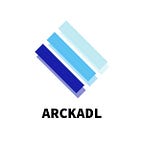When will blockchain become mainstream?
Our world is becoming increasingly digitized, which means companies are continuing to grasp at the latest technologies. This year more than ever.
The pandemic has genuinely changed the views of how many businesses handle disruptions to their typical processes. As a result, a report from IDC says that more companies will have invested in AI and advanced analytics by 2022, especially in the science and healthcare provider industry to avoid any future supply chain disruptions.
So, what does this mean?
Technologies with any promise to prevent future disruptions will be highly sought after since the world needs some certainty as things return to a new normal. To achieve this, businesses are turning to the more accurate management of data to help them better prepare for future disruptions that are within their control.
The thing is, from 2010 to 2020, the amount of data that has been collected, created, shared and used has increased by 5000%. For the next 10 years we can only expect this amount to increase exponentially.
Data is now seen as more valuable than ever before as Gartner predicts the number of businesses that buy or sell data in online marketplaces will also increase by 2022. However, from the consumer-front, many are now more concerned about their data security than ever before, especially after incidents around Facebook and Whatsapp data sharing policies. Businesses therefore, need to respond by being more acutely aware of their data governance.
With these concerns at the forefront of many IT leaders today, it is believed that 2021 is the year where adapting for smarter and more secure data usage can only be brought about by blockchain.
Why blockchain solves uncertainty concerns
In general, humans actively seek ways to lower uncertainty about each other so they can exchange value. With more uncertainty from forces external to a company, businesses need to reduce internal uncertainty as much as possible. Currently, a couple of critical reasons add to uncertainty in transactions. First, it can be hard to know exactly who you are dealing with, especially with global supply chains across the globe. Secondly, tracing an item or supply back to its origins is a costly and impossible endeavour. With blockchain technology, businesses gain increased traceability into their end-to-end supply chain solution through a decentralized data platform.
The complete picture of information can also help businesses quickly see the full scope of their business operations and determine at a moment’s notice what parts of their supply chain may be affected. It also becomes easier to adapt to upcoming concerns and re-evaluate strategies with the information available in complete transparency. This data, when used with the right predictive tools, can be leveraged to determine possible scenarios.
It is also recommended that businesses be ready to prepare for multiple outcomes instead of just considering the “most likely.” Accurate foresight provided by data drive insights can help enterprises to respond successfully to unforeseen circumstances.
The blockchain is also fundamentally more secure than a traditional database, allowing businesses to have fewer concerns about data breaches. Costs for auditing and regulatory compliance can also be reduced as these processes are completed remotely. Companies then have an opportunity to emphasize how they choose to govern the data they do have at their disposal.
Reduced complexity to integrate
The final hurdle blockchain needs to overcome is the availability of affordable solutions to deploy the architecture. Many blockchain projects are still set to fail simply because businesses do not know what they are doing or cannot afford the subject matter experts needed to implement this technology properly. This is no longer a concern as businesses, including Arckadl, have provided Enterprise Level solutions for businesses of all sizes through the Blockchain Session Controller™.
Flexible organizations use IT solutions like blockchain to innovate, adapt and develop mutually beneficial relationships that will help them to succeed in an ever-changing marketplace. IT helps to reduce the uncertainty in an organization to support data-driven decision-making and knowledge-based trust across organizations. Organizations that leverage a network like an ecosystem are more flexible in operation and can leverage the right data at the right time.
Mainstream adoption of blockchain is on the brink for both consumers and enterprises. It is believed that momentum on one front will only add to the momentum of the other. As cryptocurrencies continue to pave the way on the consumer front, businesses must consider what institutional development will look like for them.
